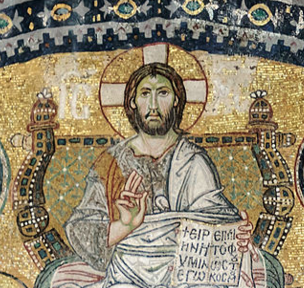Jesus’ Death, for Muslims
How is Jesus’ death good news for Muslims?
Ten years ago this month EMQ published my article, “A Muslim Theology of Jesus’ Birth and Death.” Though it was well before I began thinking in “honor-shame” terms, I was surprised to see how much my ideas were already headed that direction. As it pertains to the current series “Honor Christology,” here is an excerpt.
Copyright © EMQ (more at emqonline.com). All rights reserved. Posted with permission.
In the ancient world, thousands of people, Jesus being one of them, were crucified. The fact of Jesus’ death was hardly unique to Jesus himself, but the significance and meaning of his death is unparalleled. Christianity claims that Christ died for us. What is the significance of Jesus’ death? How did the early church interpret it? How does the modern, Western church apply Jesus’ death to its needs? How is Jesus’ death significant to modern Muslims? Again, how is that historical event relevant?

The early, apostolic church understood Jesus’ death to be relevant in a variety of ways. When Paul was struggling with Judaizers who required Gentiles to adopt Jewish ordinances, the death of Jesus was significant because it allowed non-Jews to become part of God’s people without obeying the Jewish law (Eph. 3:11-13; Gal. 2:21; 3:13-14). But in a Greco-Roman context, Paul explains Jesus’ death as the display of God’s wisdom in order to silence the prideful philosophers in Corinth (1 Cor. 1:18-25).
For Matthew, the death of Jesus marks the climax of Israel’s rejection of the Messiah (Matt. 27:25). According to Mark, the death of Jesus is the ultimate display of his faithful service as the Son of God (Mark 15:39), an example for the suffering community of disciples to whom Mark wrote. For John, Jesus’ death is not a testimony of humility, but the moment of Jesus’ exaltation.
In the book of Hebrews, Jesus’ death is significant because it renders the Old Testament sacrificial system invalid and useless. James never mentions Jesus’ death. While atonement of sins is the central theological interpretation of Jesus’ death in the early church, the way each New Testament author interprets Jesus’ death to make the historical event significant for his community directs contemporary theologies in new ways to meet new needs.
In modern, Western theology, Jesus’ death is interpreted existentially—it brings personal benefits to individuals. Since a westerner views himself as an autonomous person with a separate identity, the death of Jesus is interpreted through these lenses. For example, Jesus’ death is significant because it offers the introspective, psychologically-oriented westerner freedom from guilt. This is a carryover from Augustine’s and Luther’s understanding of Jesus’ death. The “penal substitutionary atonement” which emphasizes the appeasement of God’s wrath on our behalf over our individual sins dominates Western theology because it offers psychological assurance (Green and Baker 2000, 142-152). Also, for the individual in this world who hopes to discover personal identity and purpose, Jesus’ death is the means by which he or she can be identified as God’s child and thereby find a purpose for life. Moreover, Jesus’ death is a demonstration of God’s love, offering security to the group-less individual seeker. For westerners who tend to value personal satisfaction and interests over those of the group, Jesus’ death purchased for you and me the true joy that we seek (Hiebert 1985, 122-26).
Undergirding all such application of Jesus’ death is the Western church’s praiseworthy desire to make Jesus’ death relevant for one particular worldview. Unfortunately, this is the only understanding of Jesus’ death westerners know. Therefore, it becomes the orthodox, universal, monolithic theology exported to the Muslim world.
The formation of a Muslim theology of Jesus’ death must re-examine the individualistic orientation behind westerners’ understandings of Jesus’ death and consider Islamic doctrine about Jesus. Since most Muslims live in a group-oriented culture, existential interpretations of Jesus’ death carry little significance. Offering identity and purpose to a Muslim who already possesses an identity as a member of the family group is like bathing a fish. Group-oriented people do not feel guilt for failing to maintain an absolute standard, but shame for disrupting or dishonoring their community. Therefore, since Jesus experienced isolation and rejection (Matt. 26:31, 69-75), his death is significant for Muslims because it paid for feelings of shame and social alienation in the group that may be experienced. Jesus’ death restores humanity to God not simply by paying the punishment demanded by absolute justice, but also by dispelling the shame, abandonment and disgrace that results when humans fail to remain faithful.
For westerners, Jesus’ death is an example of someone who laid aside personal desires to follow God’s will. For Muslims, Jesus is an example of someone who remained faithful to his God-given mission to the point of death, despite social rejection.

How is it possible to comment on Jesus’ death to the muslim when no such event took place according to their Quran?